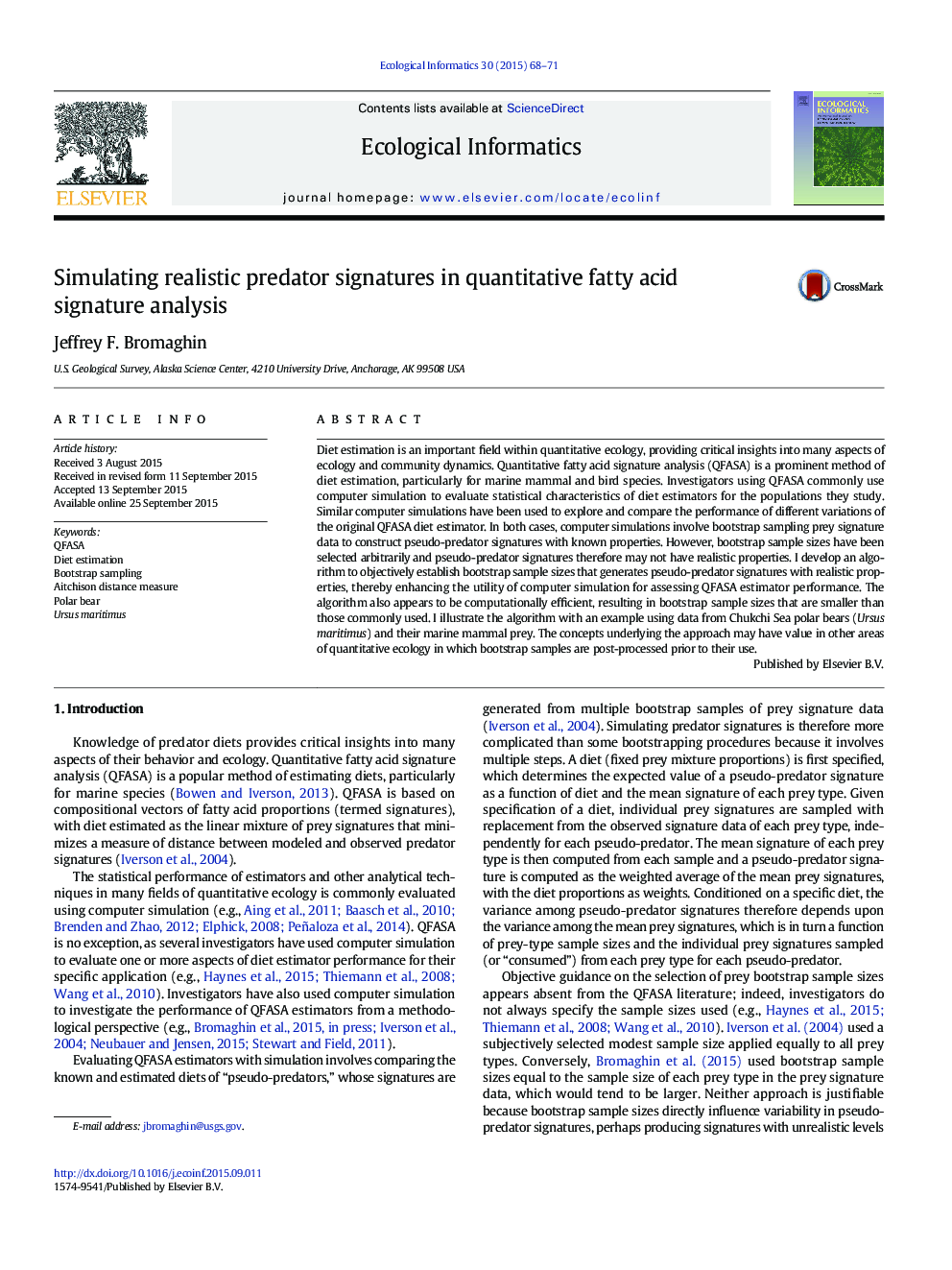| Article ID | Journal | Published Year | Pages | File Type |
|---|---|---|---|---|
| 6295800 | Ecological Informatics | 2015 | 4 Pages |
Abstract
Diet estimation is an important field within quantitative ecology, providing critical insights into many aspects of ecology and community dynamics. Quantitative fatty acid signature analysis (QFASA) is a prominent method of diet estimation, particularly for marine mammal and bird species. Investigators using QFASA commonly use computer simulation to evaluate statistical characteristics of diet estimators for the populations they study. Similar computer simulations have been used to explore and compare the performance of different variations of the original QFASA diet estimator. In both cases, computer simulations involve bootstrap sampling prey signature data to construct pseudo-predator signatures with known properties. However, bootstrap sample sizes have been selected arbitrarily and pseudo-predator signatures therefore may not have realistic properties. I develop an algorithm to objectively establish bootstrap sample sizes that generates pseudo-predator signatures with realistic properties, thereby enhancing the utility of computer simulation for assessing QFASA estimator performance. The algorithm also appears to be computationally efficient, resulting in bootstrap sample sizes that are smaller than those commonly used. I illustrate the algorithm with an example using data from Chukchi Sea polar bears (Ursus maritimus) and their marine mammal prey. The concepts underlying the approach may have value in other areas of quantitative ecology in which bootstrap samples are post-processed prior to their use.
Related Topics
Life Sciences
Agricultural and Biological Sciences
Ecology, Evolution, Behavior and Systematics
Authors
Jeffrey F. Bromaghin,
